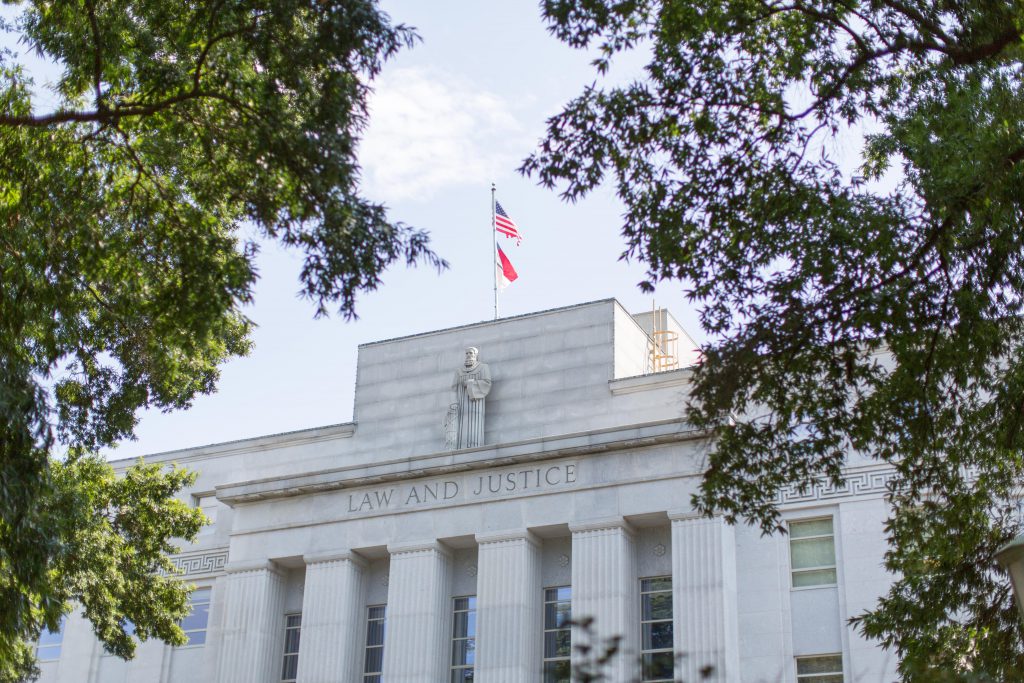
We’re waiting on the N.C. Supreme Court to rule in the Racial Justice Act cases that were argued in August. In the meantime, the court is taking on other injustices on North Carolina’s death row.
Last week, the state Supreme Court agreed with two separate death row prisoners that questionable evidence was used at their trials. Both will get new chances to present evidence that could exonerate them.
The court ruled that Michael Patrick Ryan should get a new trial, nine years after he was sent to death row by Gaston County prosecutors who falsified DNA evidence and intimidated alibi witnesses. And in Michael Sherrill’s case, the court granted a hearing where he can present evidence that he, too, deserves a new trial. Sherrill was sentenced to death in large part because of baseless accusations that he’d committed a triple murder, in addition to the murder for which he was on trial. Both men claim their innocence.
These cases highlight the fact that many of North Carolina’s more than 140 death sentences are based on weak and even false evidence. CDPL’s report Unequal Justice highlighted that most death row prisoners were tried before 2001, during a decade when North Carolina sentenced record numbers of people to death and a series of important reforms were not yet in place. But Sherrill was tried in 2009 and Ryan in 2010, showing that modern reforms have still not ensured fair trials for people facing execution.
In Ryan’s case, the Supreme Court affirmed a lower court ruling, which found that prosecutors misled the jury with a false DNA test. The prosecution’s expert told the jury that that Ryan’s DNA could not be excluded from a DNA mixture found on items stolen from the murder victim. The prosecution presented a color-coded chart which appeared to show Ryan was a contributor to the DNA mixture. The problem is, the State’s expert did not follow accepted standards in analyzing the DNA evidence. DNA experts using appropriate protocols determined that Ryan was not a contributor and that the State’s evidence was false.
A prosecution investigator also intimidated three alibi witnesses who could have confirmed Ryan’s claim that, at the time of the murder, he and his 13-year-old daughter were stranded on the side of the road with his broken down truck. The investigator improperly interviewed Ryan’s daughter without a parent present and threatened other witnesses with arrest.
Ryan’s is one of several Gaston County murder cases that have been discredited. Mark Carver won a new trial earlier this year after being sentenced to life in prison, and Mike Mead was acquitted in a case where prosecutors sought the death penalty against him.
In the second case, Michael Sherrill was convicted and sentenced to death in 2009 for a single murder that occurred 25 years earlier. However, at his trial, prosecutors presented extensive testimony about a triple murder, which they said Sherrill had also committed. The court allowed evidence about the triple murder because it helped to prove Sherrill’s guilt and eligibility for the death penalty in the single murder.
However, Sherrill’s attorneys never investigated compelling evidence that someone else committed the triple murder, in part because one of them had previously represented the other suspect and had a conflict of interest. The State eventually dropped all charges against Sherrill in the triple murder, but that was more than five years after the accusations had helped send him to death row.
Sherrill will now get to argue for a new trial that isn’t polluted by unfounded allegations about a triple murder. Sherrill says he is innocent of both the triple murder and the murder that sent him to death row.
Judging by these two decisions, it appears that this N.C. Supreme Court wants to see the whole truth come out in death penalty cases.


